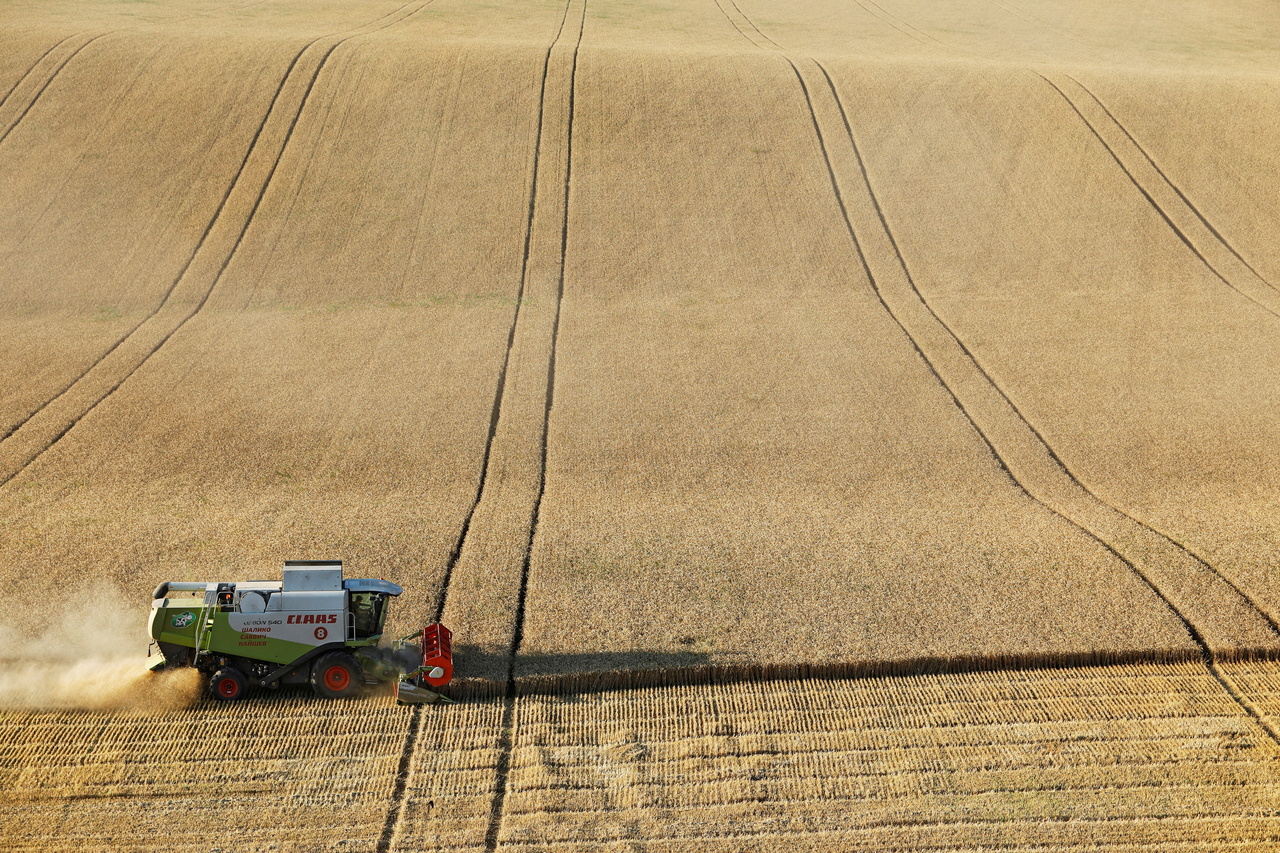Ukraine war raises spectre of 'famine'
Sign up now: Get ST's newsletters delivered to your inbox

Ukraine and Russia are among the biggest exporters of farm-grown foodstuff and fertilisers.
PHOTO: REUTERS
BRUSSELS (AFP) - The war by Russia in Ukraine risks causing famine in parts of the world because of the two countries' roles as major agricultural exporters, European Union ministers in Brussels warned on Monday (March 21).
The European bloc is working on a plan to increase the area of EU land able to be given over to farm production and ease import restrictions on animal feed, as well as looking at more direct aid to EU farmers, agricultural ministers said as they held a meeting.
The conflict "soon will bring risks of famine", impacting food security not just in Europe but worldwide, France's Foreign Minister Jean-Yves Le Drian said as he went into a separate meeting of his EU counterparts in Brussels.
"We need to take up the issue of global food security because we know the scale of cereal production, particularly from Ukraine and Russia, and we see the consequences of the war," he said.
Ukraine and Russia are among the biggest exporters of farm-grown foodstuff and fertilisers, notably of wheat, maize, rapeseed, sunflower seeds and sunflower oil.
Russia is also the biggest supplier of nitrogen fertilisers and the second-biggest of potassium and phosphorous fertilisers.
With Ukraine's access to its ports cut off by the Russian invasion and oilseed production halted, and Russia increasingly isolated from export markets and its entire economy under sanctions pressure, those supplies are shrinking fast.
International prices for grains and fertilisers, as a consequence, could soar by between 8 per cent and 22 per cent, the United Nations' Food and Agriculture Organisation (FAO) said last week.
Sky-high prices for oil, which is needed to ship supplies by sea, will only compound the problem, with vulnerable countries to bear the brunt, FAO said.
It projected that the number of undernourished people could increase by eight million to 13 million people over the course of this year and next, mainly in the Asia-Pacific, sub-Saharan Africa, the Middle East and North Africa.
Oxfam, the British-based charity, noted that a staple like bread is unaffordable in many low-income countries because wheat is imported.
In a statement, Oxfam urged donor governments to "bridge the gap between what people can pay and higher prices, and deliver much needed aid to people facing severe hunger".
But Austrian Agriculture Minister Elisabeth Koestinger said that "in the coming months of the year and beyond, we have to assume that there will be a shortage of cereals, which are very important for food aid worldwide".
While EU has enough to feed itself and is a net exporter of farm-grown food because of its generous agricultural subsidies, the Ukraine war could nevertheless impact the cost of animal feed.
Finnish Agriculture Minister Jari Leppa said the EU package should include sufficient flexibility for member states "to tailor support schemes to their own specific needs".
His Spanish counterpart, Mr Luis Planas Puchades, said that beyond the main lines of the planned EU steps, "it is quite possible that the Commission will put on the table some private stockpiling measures in the pig sector".
He also said the rising costs of fuel needed to be looked at for fishing vessels, of which Spain boasts a sizeable fleet.


